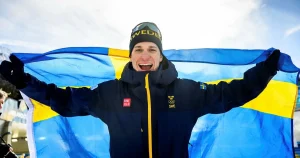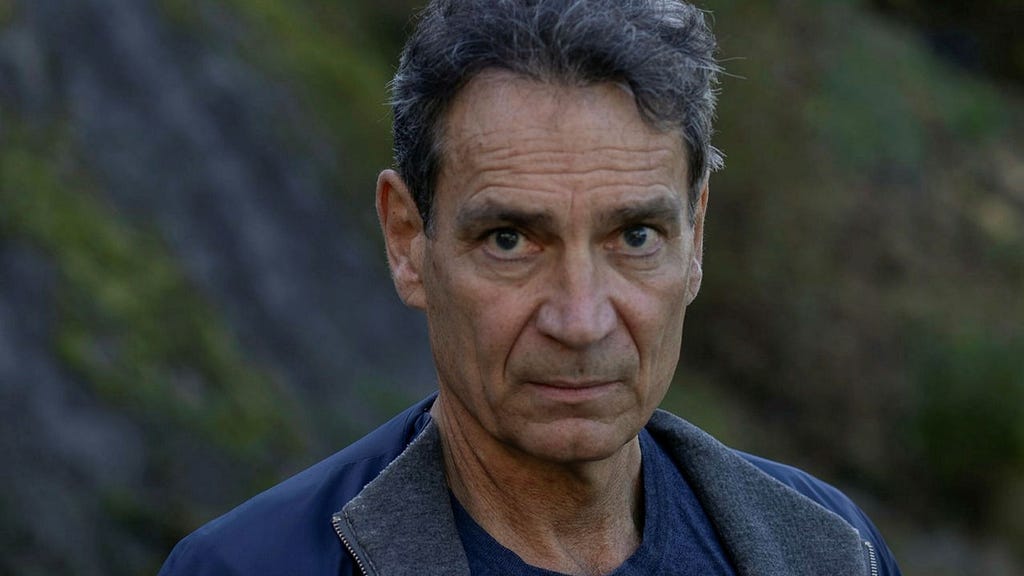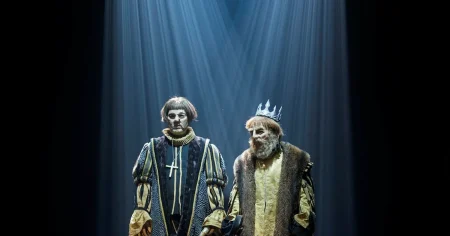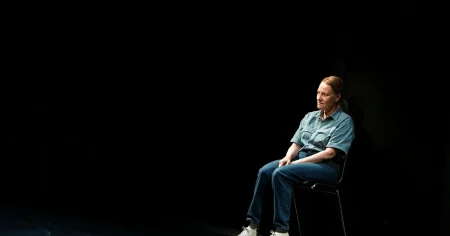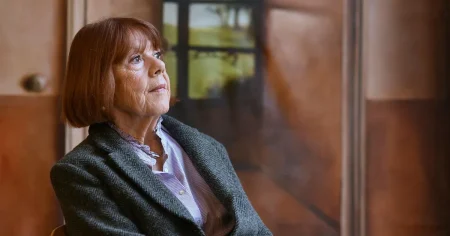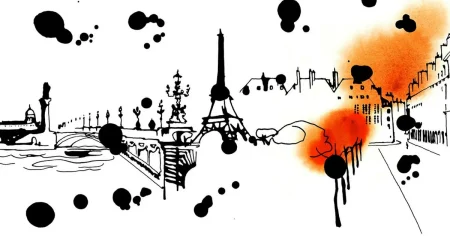Torkel S. Wächter’s ”Den far som flytt” (The Father Who Fled) is a documentary novel exploring the life of his father, Michaël, a Jewish refugee who escaped Nazi Germany for Sweden in 1938. The narrative begins with a poignant discovery: the author, as a young boy, finds his father’s study door ajar, a stark contrast to his usual closed-door work habits. This seemingly insignificant detail foreshadows a life-altering event – his father’s fatal heart attack. Years later, while sorting through his childhood home, the author unearths a collection of yellowed letters from the Fuhlsbüttel concentration camp near Hamburg, penned by a Walter, a figure who bears striking similarities to his deceased father. This discovery ignites a quest to uncover the concealed past of the man he thought he knew.
Wächter’s narrative joins a growing chorus of voices, including Joanna Rubin Dranger’s ”Dolda judiska liv” (Hidden Jewish Lives), which are only now bringing to light the stories of those who remained silent for decades about their experiences during the Holocaust. The author grapples with the weight of this silence and the complex emotions it evokes. He labels his work a ”documentary novel,” acknowledging the blend of factual research and narrative reconstruction that characterizes his approach. Similar to Niels Fredrik Dahl’s autofictional ”Fars rygg” (Father’s Back), Wächter’s book charts his father’s journey through a hostile Europe, seeking to understand the motivations and experiences that shaped his life. Wächter defends his choice of genre, asserting the novel’s unique ability to illuminate truths that other forms of inquiry cannot access. He recognizes the inherent tension between his reliance on factual material and the creative liberties afforded by fiction, but ultimately believes the novelistic form allows for a deeper exploration of the historical context and human impact of his father’s experiences.
The painstaking research process involved years of dedicated work, encompassing interviews with surviving relatives, consultations with experts, meticulous archival research, and the deciphering of cryptic documents. Transcribing his father’s handwritten notes, written in the now-obsolete Sütterlin script, required the assistance of a ”senior citizens’ computer club” in Hamburg. This encounter highlights the lingering guilt and unease that permeates German society even decades after the war, with one club member repeatedly expressing gratitude for the opportunity to help while somberly acknowledging their generation’s culpability in the atrocities of the Nazi regime. These poignant interactions underscore the enduring legacy of the Holocaust and the emotional complexities that continue to shape the lives of those affected by it.
The book reconstructs Walter/Michaël’s life in pre-war Germany, where mistrust and fear became pervasive after the Nazi seizure of power in 1933. Just two months after Hitler’s rise, Michaël’s father, a respected civil servant, was falsely accused of being a ”Jew and Marxist”—an accusation that reflects the paranoia and prejudice of the era. Young Walter’s diary entries, included in the book, reveal his acute awareness of the escalating dangers facing Jews in Germany. He expresses a profound sense of foreboding, recognizing that his Jewish identity has become a defining and perilous characteristic in an increasingly hostile society. His words poignantly capture the despair and uncertainty that gripped Jewish communities as their rights and freedoms were systematically stripped away.
Walter’s arrest by the Gestapo on trumped-up charges of handling ”illegal political material,” including literature deemed subversive by the regime, marks a turning point in his life. His imprisonment in Fuhlsbüttel, one of the early concentration camps used to ”re-educate” political dissidents through torture, becomes a central focus of the narrative. The letters he sent home during this period, constrained by censorship and the need to protect his family from the full extent of his suffering, form the emotional core of the book. They reveal not only the horrors he endured but also the profound impact of his experiences on his personality. Wächter laments the loss of the ”gentle and playful Walter” glimpsed in earlier diaries and photographs, replaced by a hardened survivor marked by the trauma of imprisonment.
The narrative follows Michaël’s journey to Sweden, his reinvention of himself, and his subsequent life as a successful researcher and writer. He built a family and a career, seemingly leaving his past behind. Wächter portrays his father as a driven and accomplished individual, but also highlights the underlying sense of displacement and the unresolved trauma that shaped his interactions with his family. The author employs a straightforward, unadorned prose style that enhances the sense of intimacy and authenticity, drawing the reader into the small details of family life against the backdrop of the larger historical context. The author grapples with the complicated legacy of his father’s silence, the ”book tsunami” of documents left behind, and the persistent feeling of being neither fully Swedish nor fully Jewish—a sense of in-betweenness inherited from his father.
Wächter, a pilot by profession, weaves the symbolism of flight throughout the narrative. He describes his experience flying over Hamburg, feeling a sense of unease without understanding its source, recognizing it as a form of inherited memory and a connection to his father’s past. He questions his own complicity in the injustices of the present, reflecting on his role as a pilot assisting in the deportation of illegal refugees. This moral dilemma adds another layer of complexity to the narrative, highlighting the ongoing struggle to reconcile the past with the present and the enduring need to confront injustice in all its forms. The book concludes with a powerful reflection on the nature of flight, both literal and metaphorical, and its connection to the human desire to escape from responsibility, suffering, and the pervasive ”rot in the state.” The author’s personal journey of discovery becomes a powerful meditation on the enduring legacy of trauma, the complexities of identity, and the ongoing struggle for justice and accountability.



